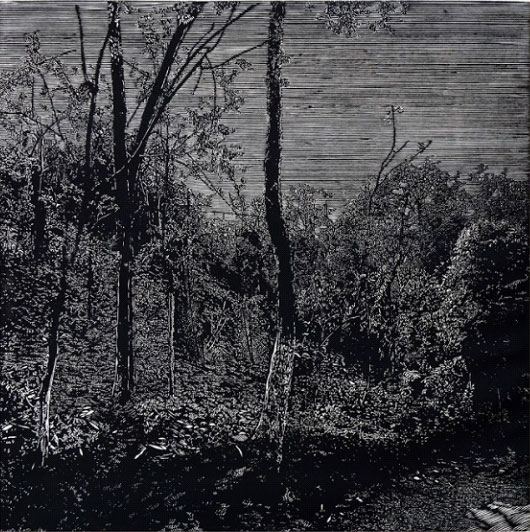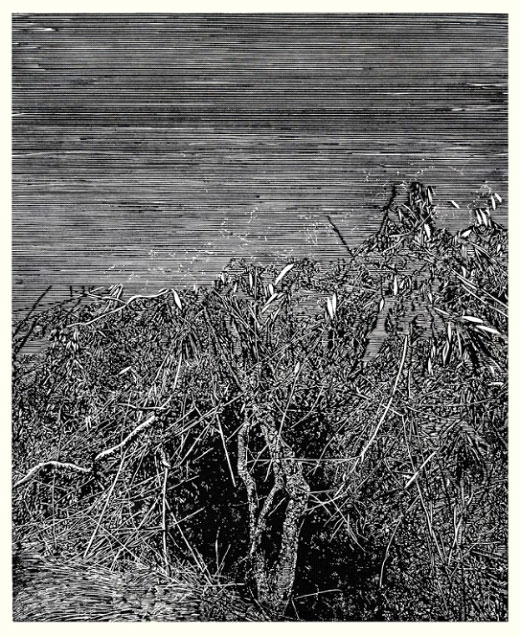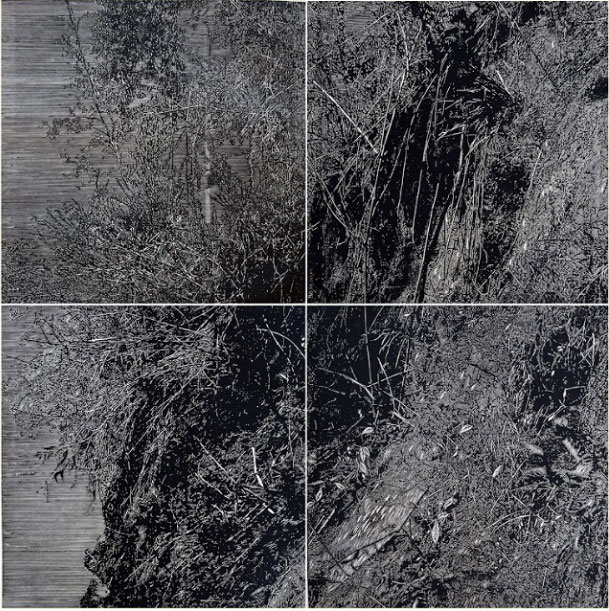‘IF A TREE FALLS’, SOMEONE IS LISTENING
A prolonged detachment with nature often makes one feel lost, compelling one involuntarily to reconnect with self through nature. Staying close to nature has only ever brought one closer to self. Chandan Bez Baruah is a practicing artist from Guwahati, Assam, India who finds his ‘self’ in nature, amongst the trees, the forest. The show titled ‘If a tree falls’ at Latitude 28 presented the artists’ woodcut prints and gave us a glimpse into his Nostalgia.
Nostalgia has often compelled artists to express the experienced. For Chandan Bez Baruah, it is the Nostalgia of the landscapes of Assam that inspires him to carve.
Growing up in a place like Guwahati, one cannot turn a blind eye towards the aesthetics of its Geography. The recurring visuals of the hills and forests that might have etched in the artists’ memory are evident in his work.
I have always believed that an artists’ art practice is a reflection of the very being of that person. Similarly, in Chandan’s works, one can very well see through the sensitivity that he must possess in order to create art which is inspired from something so ephemeral. An artist’s sensitivity adds another layer towards the perception of their art practice. So is it in this case.
The woodcut prints of the junglescape, for lack of a better word; is a photorealistic capture of what is seen, observed and experienced by the artist. The artist has almost transformed his vision onto a paper through the meticulous and intricate process of Woodcut.
Chandan had suggested that one purpose to his landscapes was “to see the insight terrain of the marginalised or the subaltern, and to situate Postmodern landscapes as encountering Romantic theory”. The artist’s statement is evident in the work.
On a conceptual note, the Landscape paintings as a genre has long existed as Imperial Art since the 18th century. Chandan Bez Baruah’s meticulously orchestrated woodcut prints are renditions of Assamese forest landscapes, which he has traversed and explored countless times, seeing the forests of Guwahati as a soothing retreat from the phantasmagoric cityscape. Chandan carves his images in photorealistic style onto medium density wood fiber in his intensive printmaking process. The outcome of his process has a suggestion of the ‘negatives’ of a photograph. The absence of colour makes one think of life taken away from the forest. It may as well suggest the commentary on today’s environmental crisis we are facing with the unending series of forest fires that are destroying the ecosystem. His works may have several interpretations, making it universally received.
Concluding with John Berger’s words…
“It is seeing which establishes our place in the surrounding world; we explain that world with words, but words can never undo the fact that we are surrounded by it. The relation between what we see and what we know is never settled. Each evening we see the sun set. We know that the earth is turning away from it. Yet the knowledge, the explanation, never quite fits the sight.”
– John Berger
Text by Rageshree Ranade
Image Courtesy: Latitude 28 Gallery and Chandan Bez Baruah
Find out more about the Artist and the Gallery:








